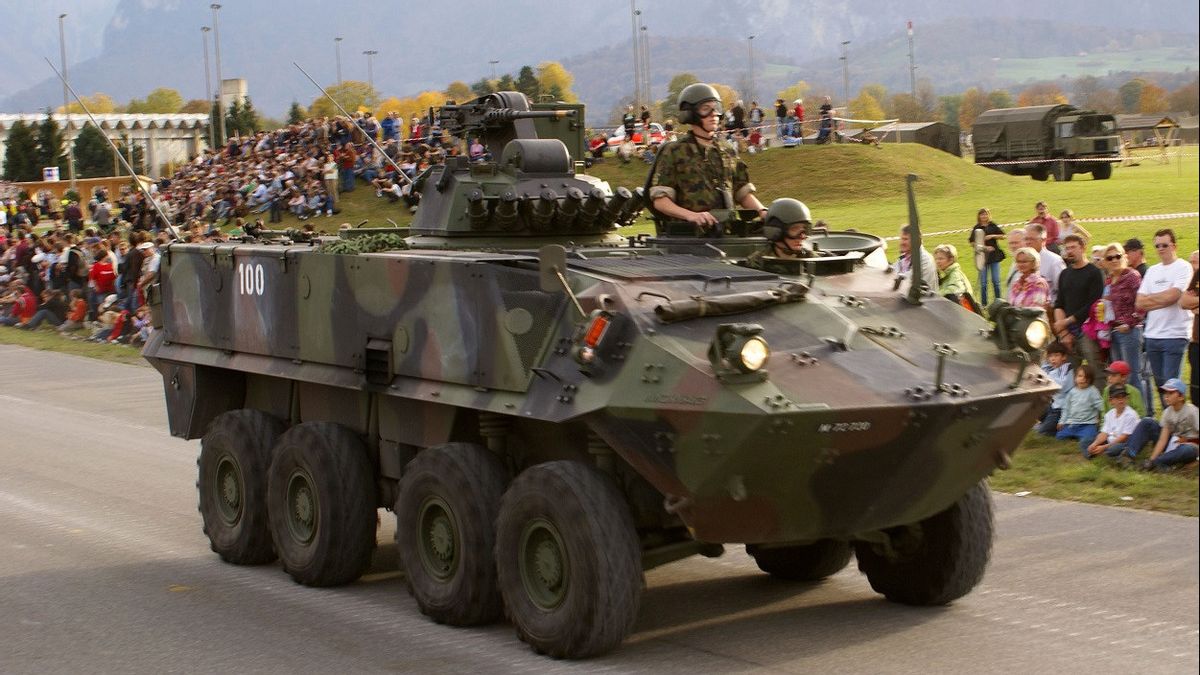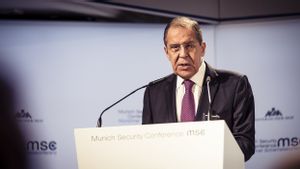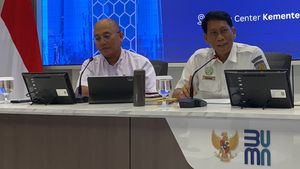JAKARTA - Switzerland has again refused a request to send its homemade weapons related to the conflict in Ukraine, promoting the country's neutrality status towards the conflict.
The Swiss government has vetoed Denmark's request to send its armored personnel carrier to Ukraine, citing its policy of neutrality not to supply weapons to conflict zones.
The Secretariat of State for Economic Affairs (SECO) rejected Denmark's offer to provide Piranha III infantry fighting vehicles to Ukraine, it said, confirming a report by broadcaster SRF.
It is known, that neutral Switzerland applies a rule that requires foreign countries that buy Swiss weapons to ask for permission if they want to re-export the weapons they buy, Reuters reported on June 1.
Previously, Switzerland vetoed plans to re-export their homemade ammunition used in anti-aircraft tanks, which Germany sent to Ukraine.
"The question by Germany regarding whether ammunition received from Switzerland could be transferred to Ukraine was answered in the negative with reference to Swiss neutrality and the mandatory denial criteria of the Swiss war materials law," said SECO.
In addition, Switzerland has also refused a request from Poland to send weapons to its neighbor, Ukraine, which is facing a Russian invasion.
"Poland's first wish was actually for arms deliveries. But it doesn't match our neutrality. I explained that quite clearly to (Polish Prime Minister) Mateusz Morawiecki and he took note of it," Swiss President Ignazio Cassis told Swiss broadcaster SRF some time ago.
"Then, of course, the head of the Polish government expects full support for the sanctions. I told him that not only do we fully support it so far, but go even further," he added.
VOIR éGALEMENT:
Switzerland has broken with past practices and adopted EU sanctions designed to punish Russia for invading Ukraine, an attack Moscow describes as a special military operation, to disarm and denazify Ukraine.
However, Swiss neutrality faced its biggest test in decades as domestic debate raged over how to interpret the policies that distanced Switzerland from both world wars during the 20th century.
The English, Chinese, Japanese, Arabic, and French versions are automatically generated by the AI. So there may still be inaccuracies in translating, please always see Indonesian as our main language. (system supported by DigitalSiber.id)













